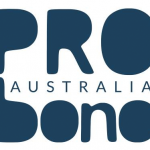Disaster recovery, covering the basics and who's who and what do they do?

7 March 2022 at 5:26 pm
All the latest news from the Councils of Social Service of Australia.
ACOSS
A new report from the ACOSS/UNSW Sydney Poverty and Inequality Partnership shows that during the first “Alpha” wave of the COVID-19 pandemic in 2020, Australia halved poverty and significantly reduced income inequality, thanks to a raft of Commonwealth government crisis support payments introduced to help people survive the first lockdown. It also highlights that over the course of 2021, and throughout the spread of the “Delta” variant, the federal government rapidly reversed this extraordinary progress by cutting financial aid and denying it to most people on the lowest incomes. The latest report from ACOSS and UNSW, COVID, inequality and poverty in 2020 & 2021: How poverty and inequality were reduced in the COVID recession and increased during the recovery, examines how people at different income levels fared during those two phases of the COVID-19 pandemic. Click to learn more.
QCOSS
As Queenslanders begin the clean up after devastating floods, QCOSS is calling for the federal government’s Disaster Recovery Payment to be increased to $3,000 per adult and $1,000 per child to help those affected. Together with ACOSS, QCOSS is also calling for additional funds to be made available to community organisations, as frontline workers source emergency accommodation and provide food and much needed mental health supports.
SACOSS
SACOSS has been putting the spotlight on key areas requiring political commitment and action in the lead-up to the 19 March SA state election in its Cover the Basics campaign, including the need for more public housing, and investment in digital inclusion. Political leaders are fielding questions on these areas and others at the Couch Series events, as well as SACOSS’ recent joint public health forum as part of the SA Public Health Consortium.
TasCOSS
Are you an organisation who supports Tasmanian communities living on low incomes? TasCOSS is part of a cross-sector collaboration called TasCollab which is seeking your input into the design of a Community Voice Partnership Program. The goal of the program is to create paid opportunities for Tasmanians living on low or inadequate incomes to have a say in services and decisions which affect them. Complete a short survey.
NCOSS
NCOSS is urging the NSW government and Resilience NSW to better use the network of frontline NGO services in its response to the flood emergency in northern NSW. NCOSS members in the region have expressed their concerns regarding smaller towns, including Mullumbimby and surrounding areas such as Wilson’s Creek, Billinudgel and New Brighton. Read more.
ACTCOSS
ACTCOSS has condemned the heartless implementation by the ACT government of its public housing renewal program. In recent days, over 300 ACT Housing tenants – including older people, people with chronic health issues and people with disability – have been shocked to receive letters informing them that they will need to vacate their properties. Many have been living in their homes for decades. Click to learn more.
NTCOSS
No one should have to experience or live with domestic, family or sexual violence. Territorians face the highest rates of DFSV in the country and NT government data shows domestic homicides rates are six times the national average. It’s critical that survivors can access DFSV services and get help. NTCOSS has been advocating for, and with, the specialist domestic, family and sexual violence service sector in the NT to improve safety, well-being, economic and social justice outcomes for victims and their children. Click to learn more.
WACOSS
In the last week WACOSS has been able to secure a huge win for the sector, with the McGowan government agreeing to provide additional personal protective equipment (PPE) for the sector, support to develop and implement a surge workforce framework, and funding for additional cleaning required through the next phase of the pandemic. These measures will greatly assist in helping the state’s most vulnerable people navigate the coming months. Read more.
VCOSS
VCOSS has developed the resource “Who’s who and what do they do?”, which has been created to support organisations and communities plan for and recover during difficult times. This guide helps community organisations understand where they fit in the emergency management landscape and how to explore collaborative opportunities going forward. Click to access.
This article was contributed by ACOSS Community Hub.








